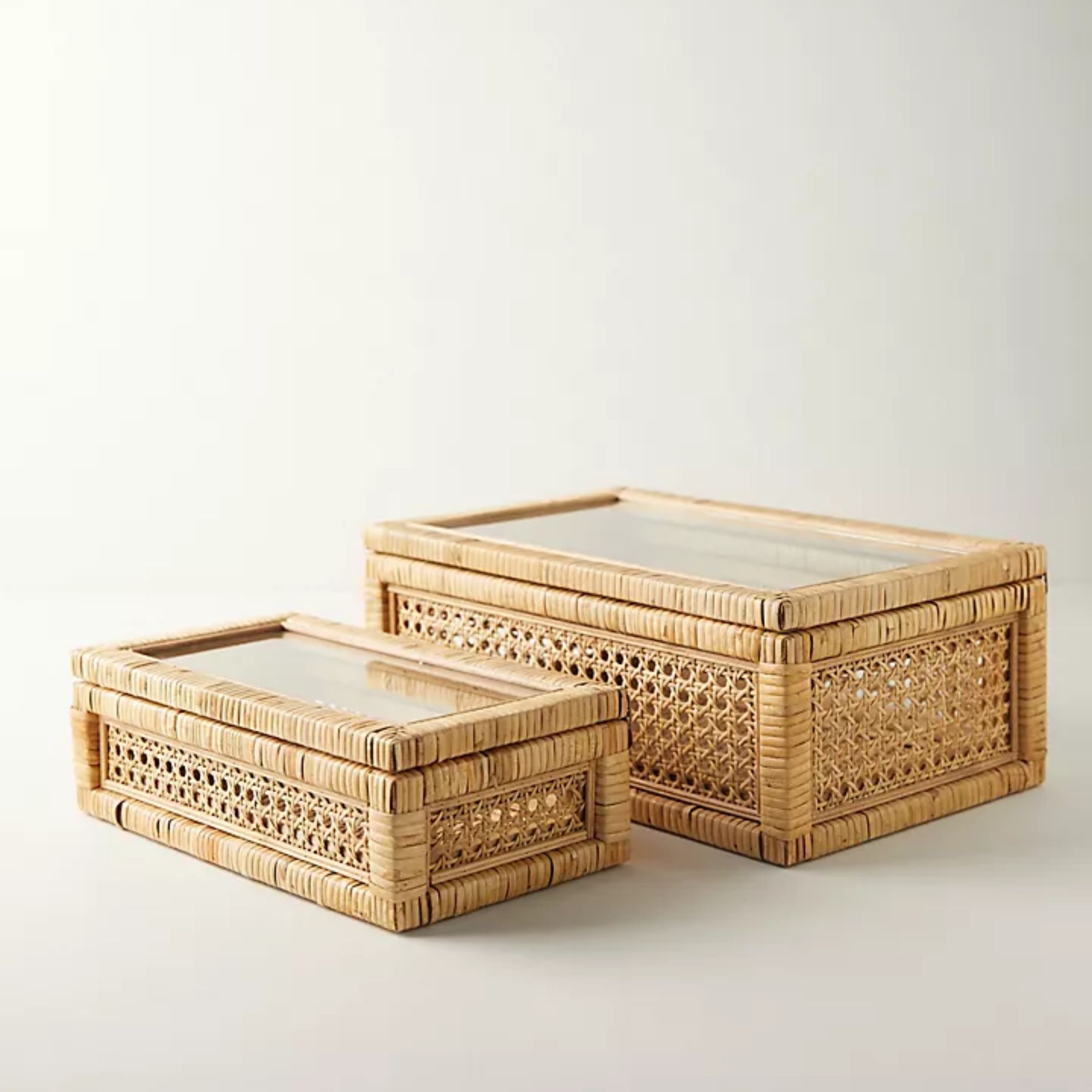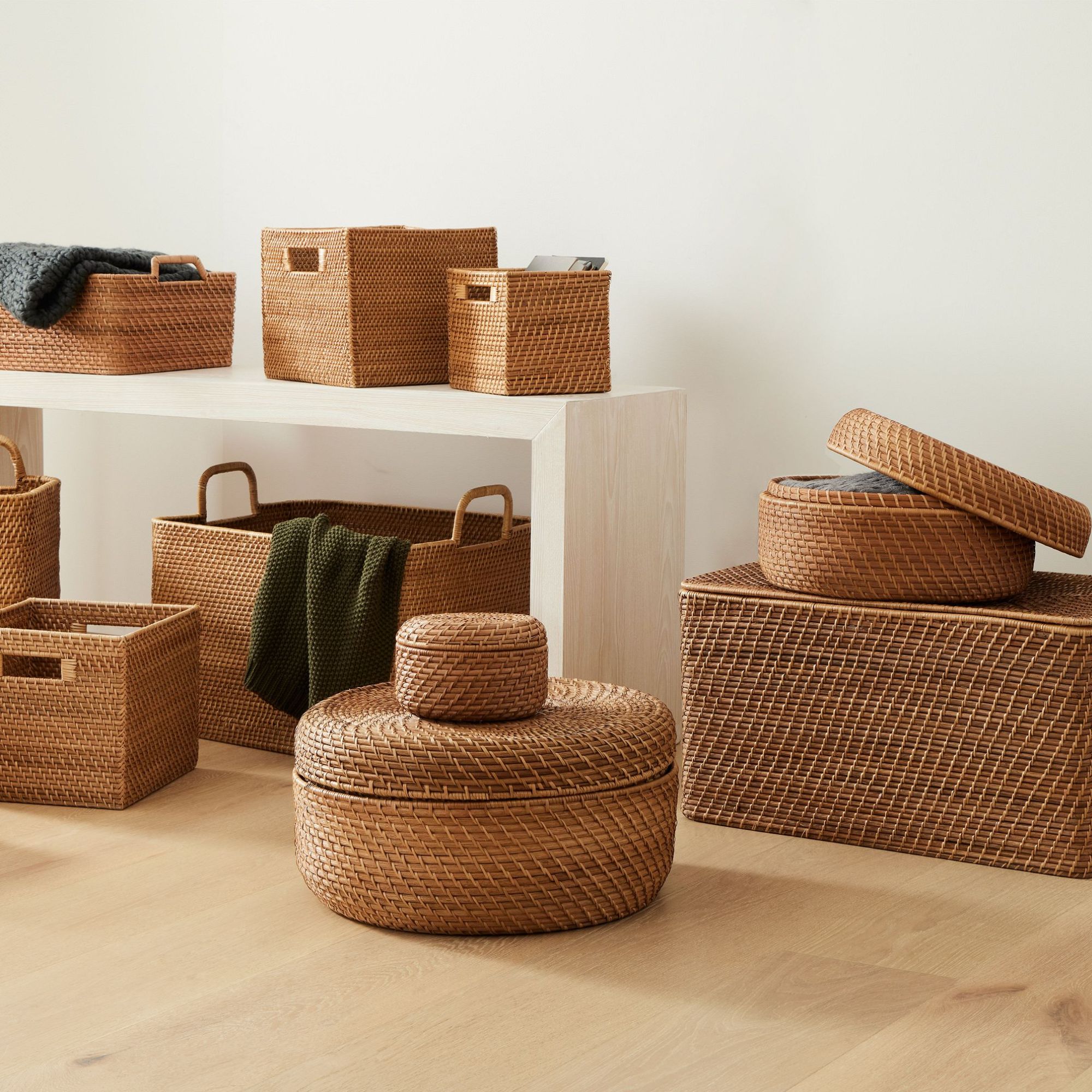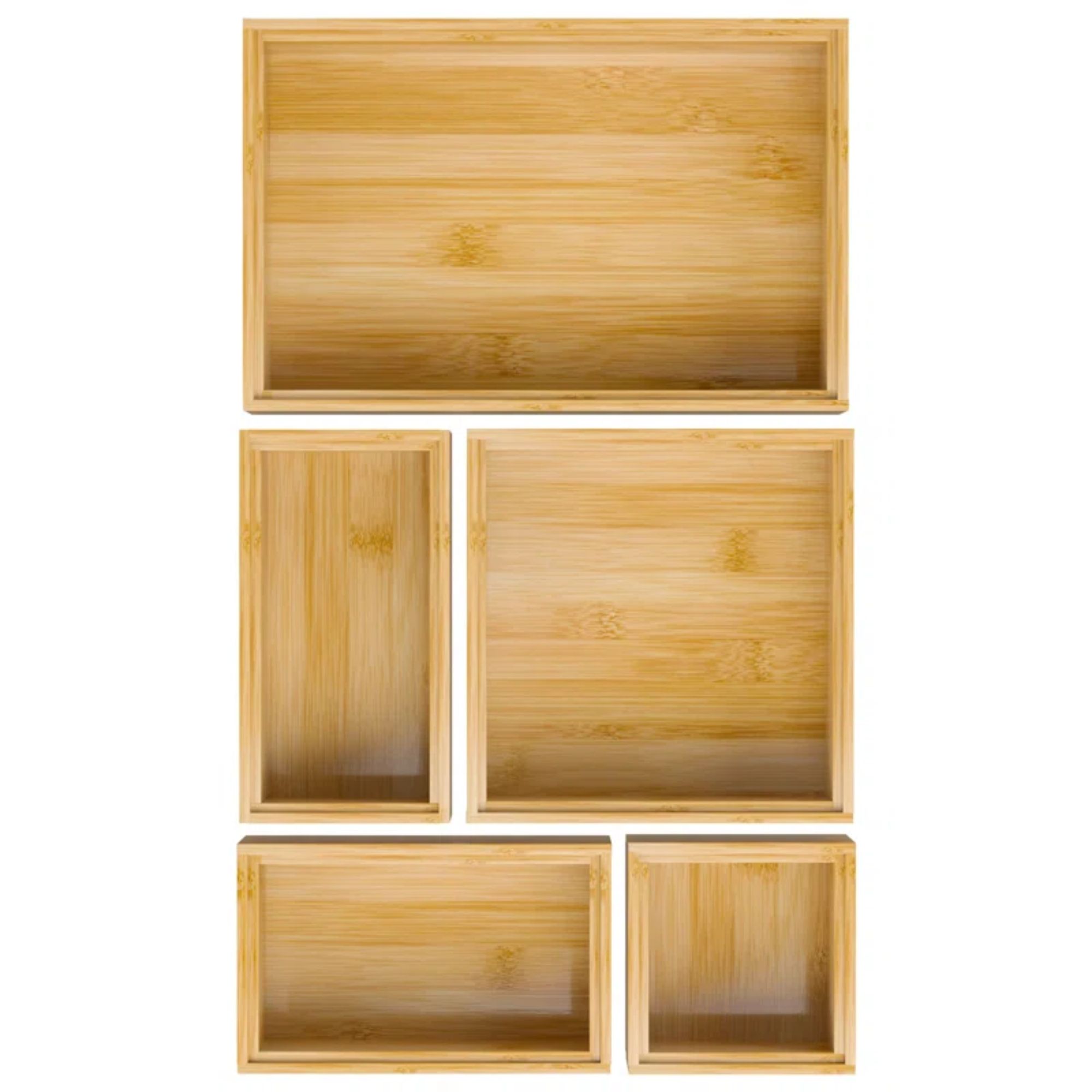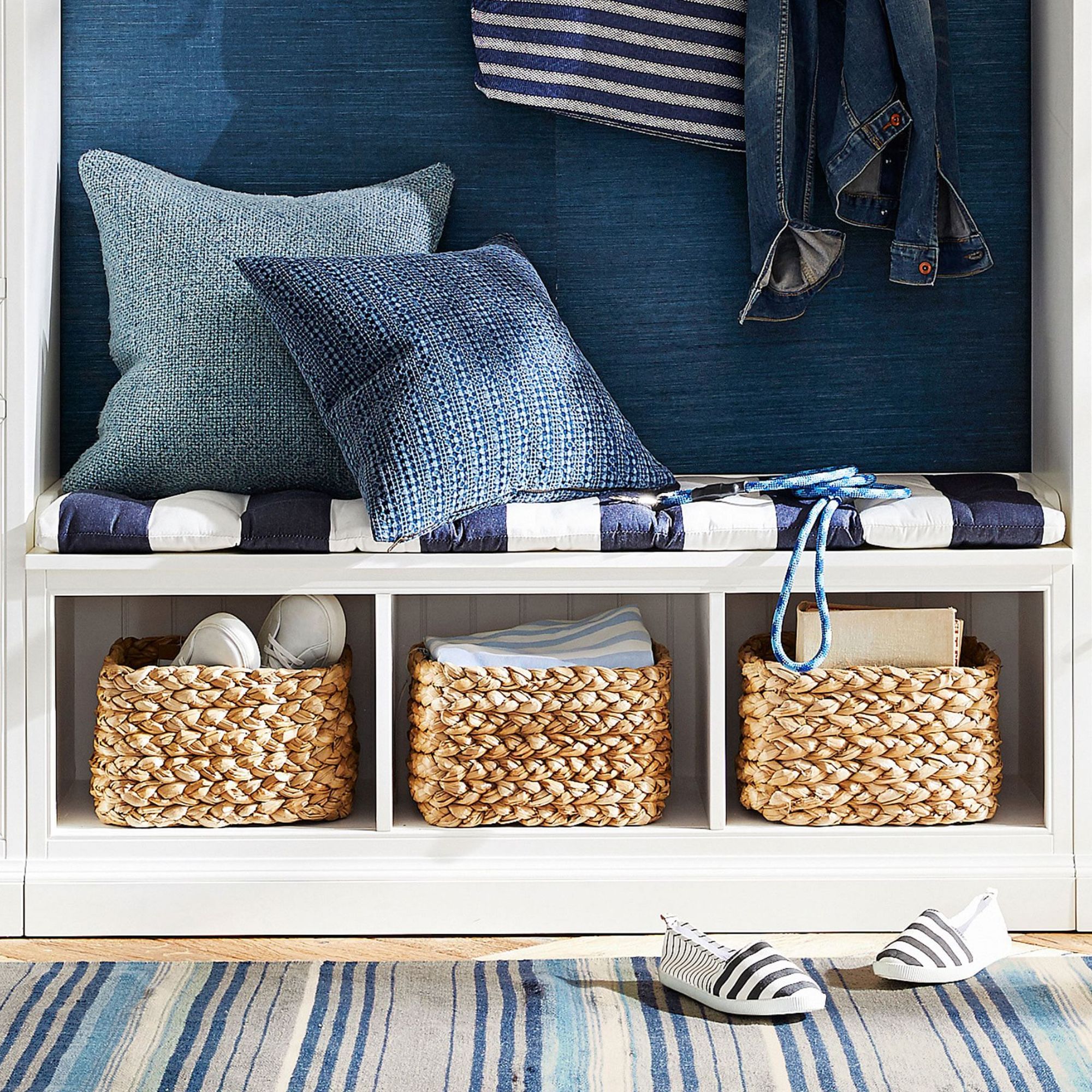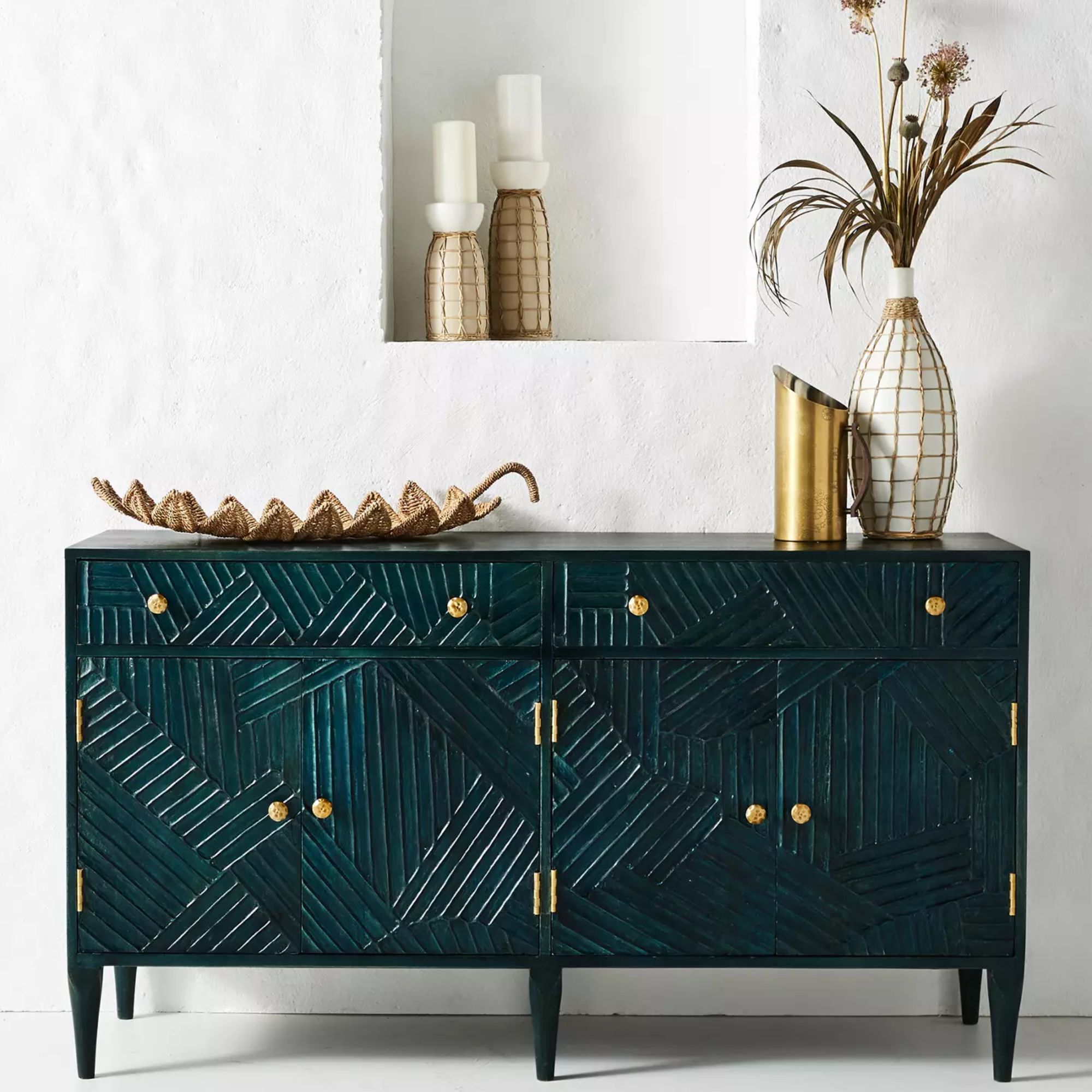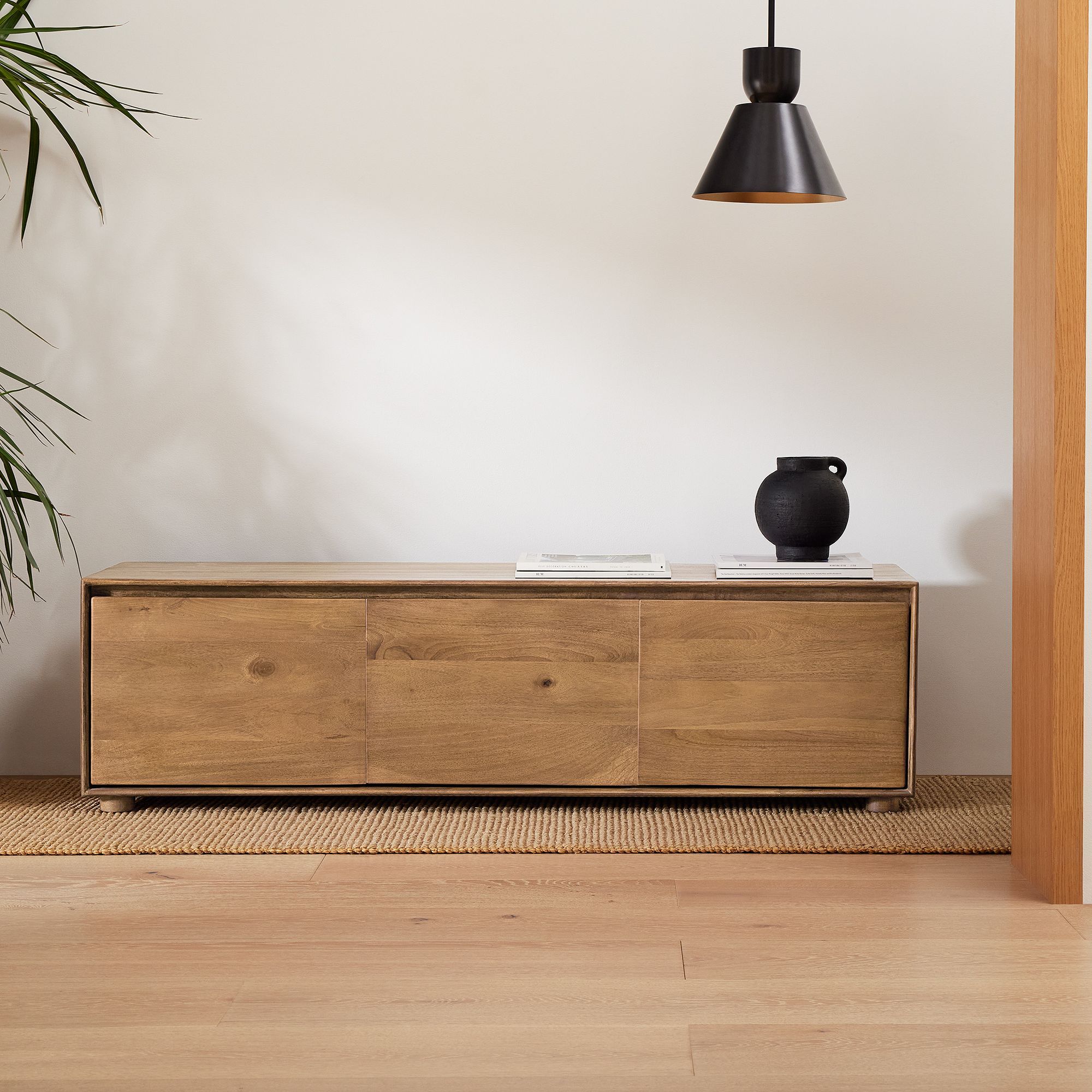These 6 simple techniques can help reduce visual clutter in your entryway
These tactics are not just about keeping clutter hidden but strategically organizing your space to reduce it building up in the future for a stress-free home

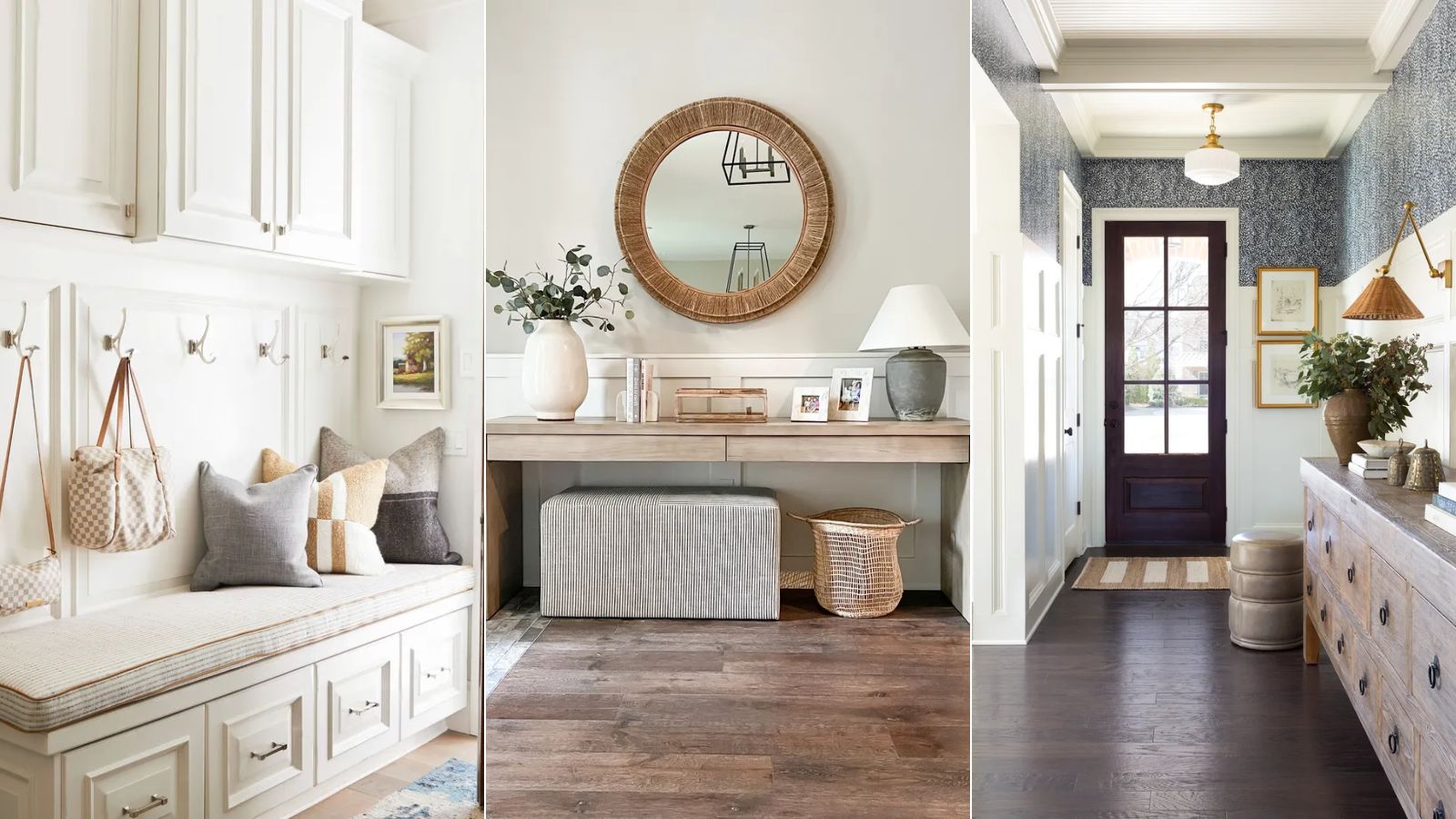
Design expertise in your inbox – from inspiring decorating ideas and beautiful celebrity homes to practical gardening advice and shopping round-ups.
You are now subscribed
Your newsletter sign-up was successful
Want to add more newsletters?

Twice a week
Homes&Gardens
The ultimate interior design resource from the world's leading experts - discover inspiring decorating ideas, color scheming know-how, garden inspiration and shopping expertise.

Once a week
In The Loop from Next In Design
Members of the Next in Design Circle will receive In the Loop, our weekly email filled with trade news, names to know and spotlight moments. Together we’re building a brighter design future.

Twice a week
Cucina
Whether you’re passionate about hosting exquisite dinners, experimenting with culinary trends, or perfecting your kitchen's design with timeless elegance and innovative functionality, this newsletter is here to inspire
Visual clutter can be a source of stress, no matter which room it is in, but when it is your entryway that looks cluttered, the space that sets the tone for the rest of your home to guests, and after a long day of work, the negative effect of this can feel even more intensified.
Even if an entryway is organized, visual clutter can still build up easily, making your entryway feel untidy, unwelcoming, and smaller. For this reason, finding some tactical storage solutions and techniques can ensure this is a more relaxing, open space.
In this guide, our experts have explained the best storage ideas and ways to organize your entryway to keep clutter at bay.
Ways to reduce visual clutter in an entryway
Not only can visual clutter make cleaning and navigating your entryway more challenging, but it can also release the stress hormone cortisol in the brain, meaning reducing visual clutter is a task that is beneficial for more than just organizational purposes.
1. Use open storage sparingly
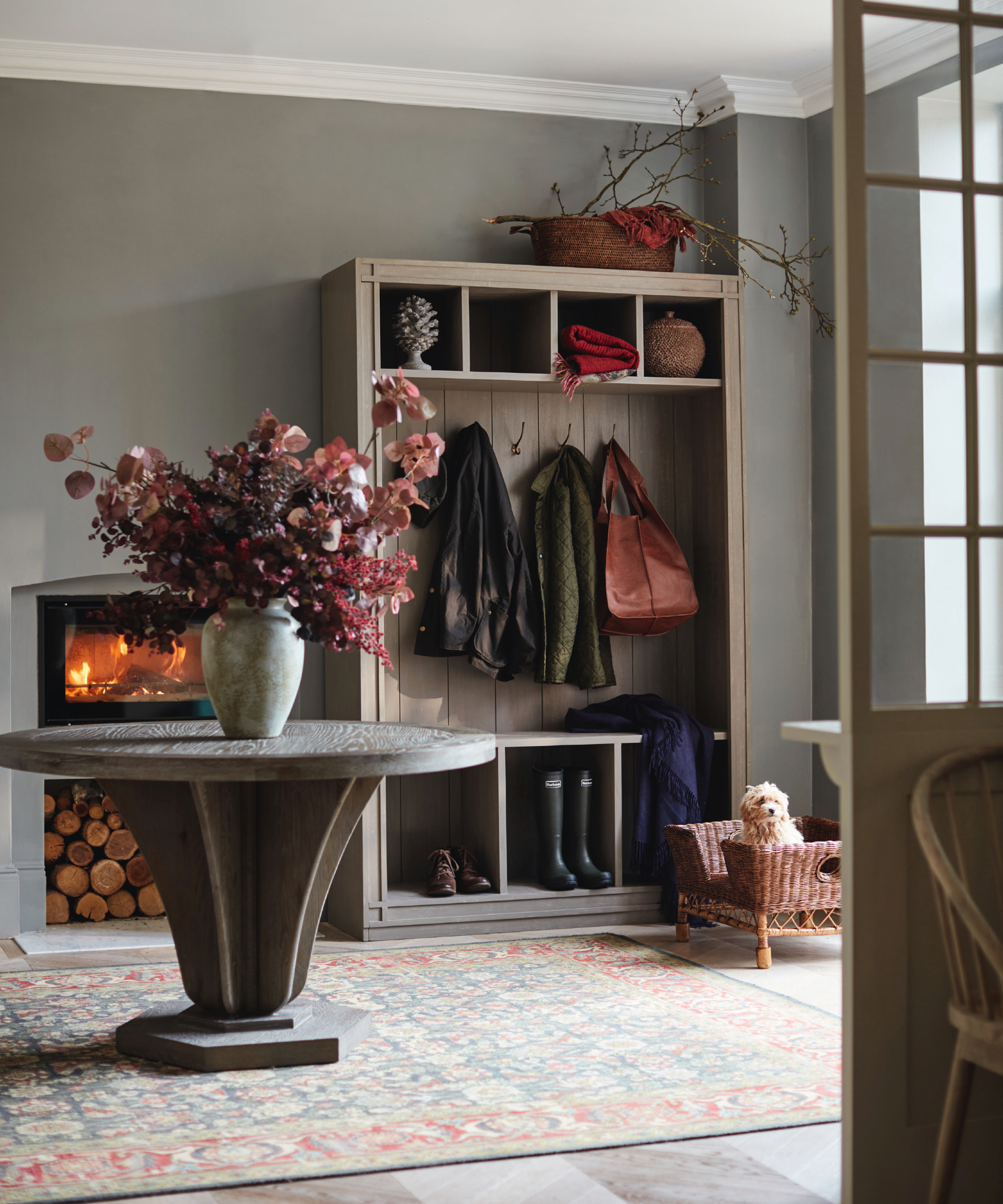
While open storage may be a convenient way to keep items accessible and is a space-saving solution where entryways do not have space for closed storage, they can make an entryway look disorganized and messy if not used sparingly.
There are a few ways this can be done:
- For one, try to keep open storage to a minimum. Opt for closed cabinets, dressers, storage console tables, and cubbies where possible while limiting the use of open shelves, hooks, or pegboards. Having a balance between open and closed storage is usually the best way to mix convenience with a sleek aesthetic, allowing you to keep a few pleasing items on show and the rest concealed.
- Consider using decorative baskets and bowls to corral smaller items, streamlining the look of items stored on open shelving. Follow the 'No More Than Four' rule to reduce visual noise.
- Limit the number of items on display. Hooks, coat stands, and pegboards can be convenient for storage if you don't have cabinets to conceal larger items, however, be sure to keep the items stored on this open storage limited to essential or daily-used items to keep these from looking overcrowded.
- Similarly, only display a few carefully curated decorative items. Create visual balance by spacing these items evenly on shelves and choosing those in varying heights and shapes to create a more intentional appearance, reducing the impression of clutter.
- Finally, Lucy Searle, Content Director of Homes & Gardens advises: 'Try to position open storage so that it isn't immediately visible from the front door, nor from, for example, the door to your living room. Out of sight, out of mind.'
2. Use discrete catch-all trays
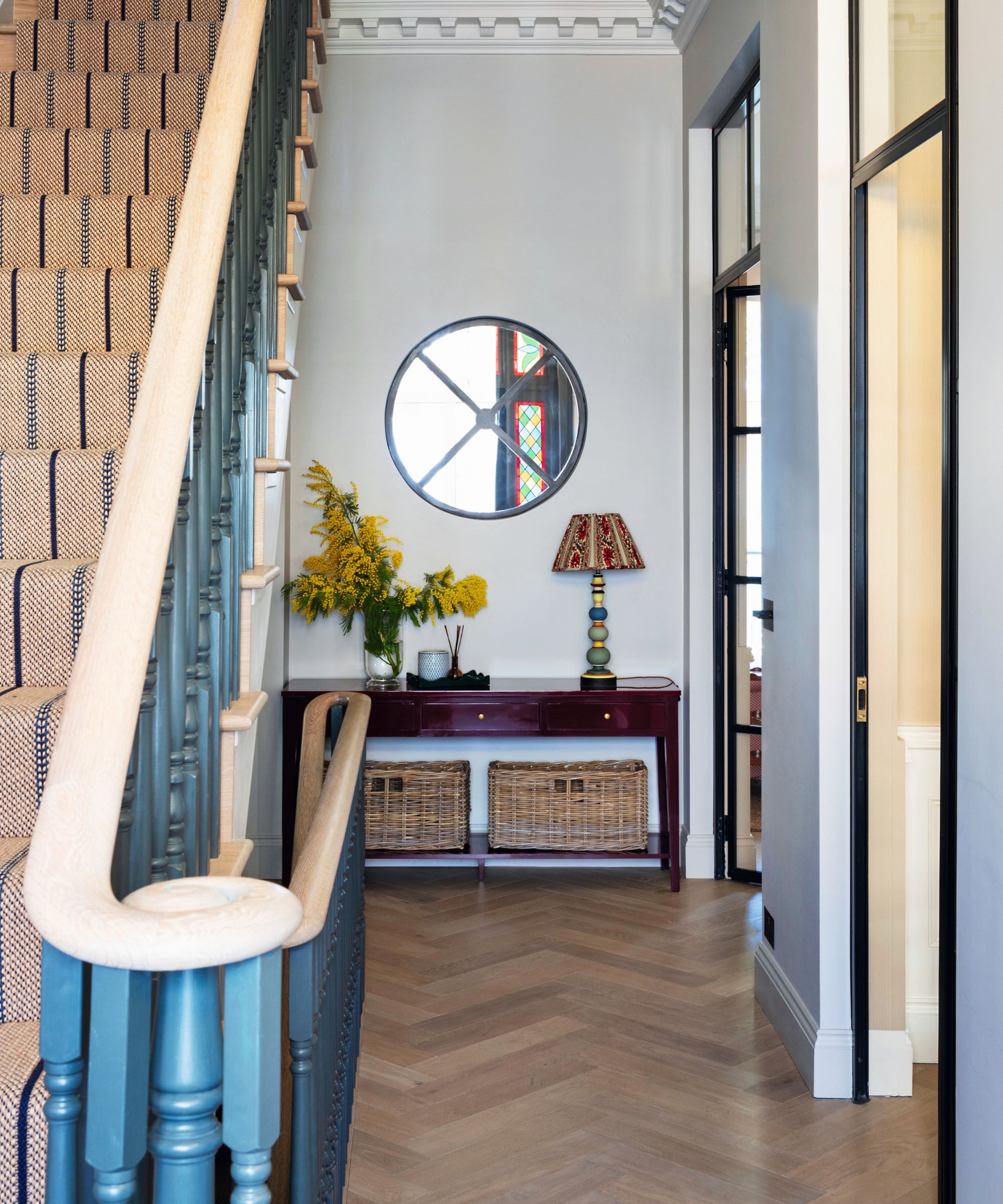
One of the main reasons why entryways become cluttered is because they often serve as a catch-all for miscellaneous items. Instead of scattering items like keys, sunglasses, or even shoes across various surfaces and areas in your entryway, having a designated catch-all space for these can keep visual clutter from ever piling up. However, be sure the catch-all storage is out of sight, either by storing it in a drawer or openly but in something decorative, like a box, bowl, or basket with a lid.
Design expertise in your inbox – from inspiring decorating ideas and beautiful celebrity homes to practical gardening advice and shopping round-ups.
Although catch-alls are usually a space where items are stored until they are dealt with later, you can use this opportunity to create an organizational system to allow family members to quickly and conveniently drop off daily used items.
For example, if your designated catch-all space for smaller items is in a drawer, you can implement dividers and label each section for different items to be stored there. This will make organizing your entryway and locating items such as keys, letters, and sunglasses easier and keep visual clutter from accumulating.
3. Keep items where they will be used
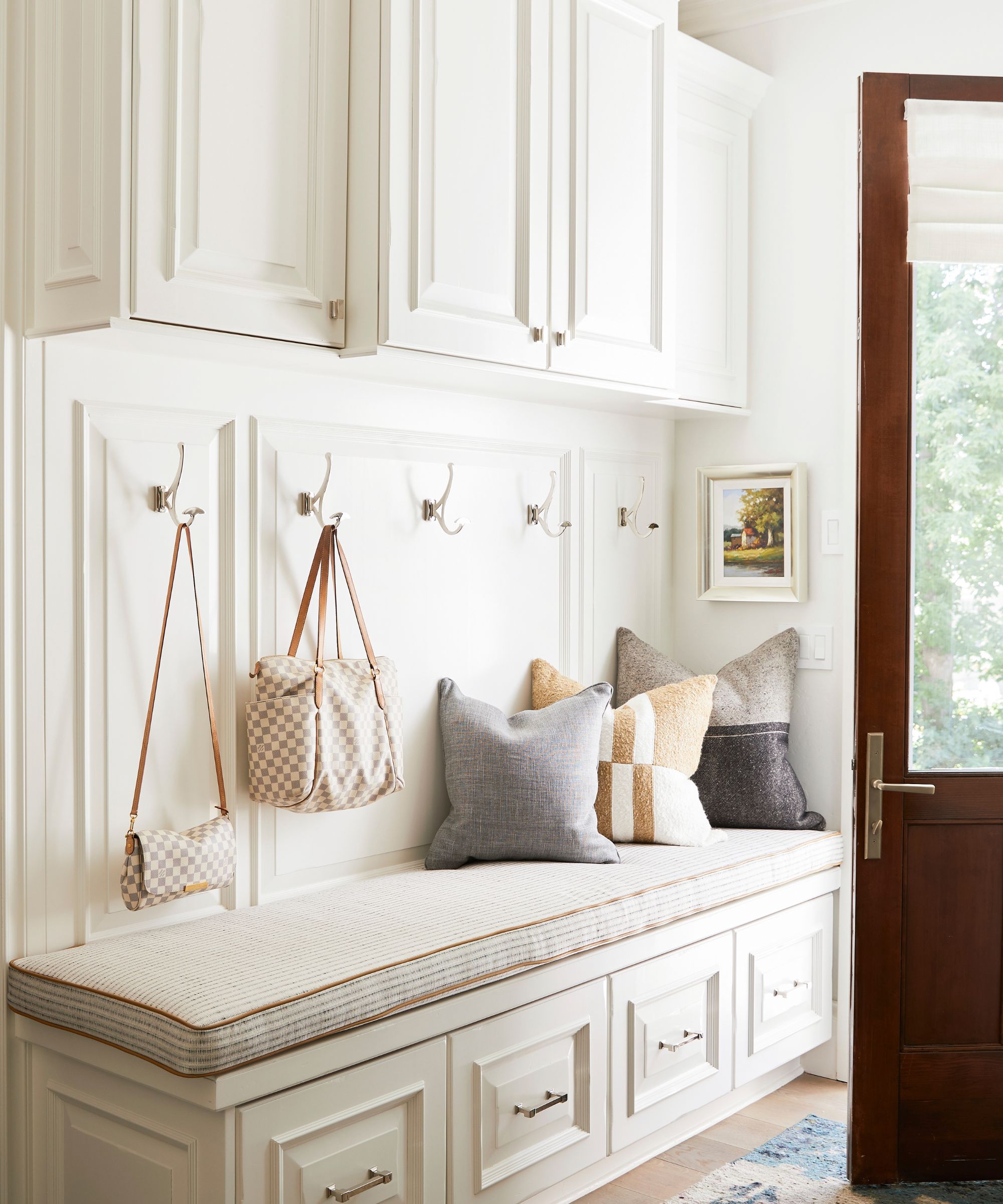
While you may have ample storage in your entryway, you might find that clutter builds up regardless. With so much coming and going, putting away items that are used frequently can sometimes feel like a hassle. As a result, family members often place items in convenient locations rather than their designated spots.
'To help you win the battle against the daily build-up of visual clutter, designate storage spaces for categories of items corresponding to where they will be used. This way, you can keep them from being scattered around your entryway,' says Lucy Searle. 'This is because it allows for quick, convenient access, encouraging younger – and messier – members of the family, in particular, to put their own items away.'
The best way to do this is to assess where items seem to naturally wind up and adjust the location of storage options accordingly. For instance, I now keep a key bowl and letter organizer in my console drawer, a basket for shoes under my entryway bench where I always put on and take off my shoes, and a basket for umbrellas by the door, where I find it best to air them out after a rainy day.
4. Use storage-furniture
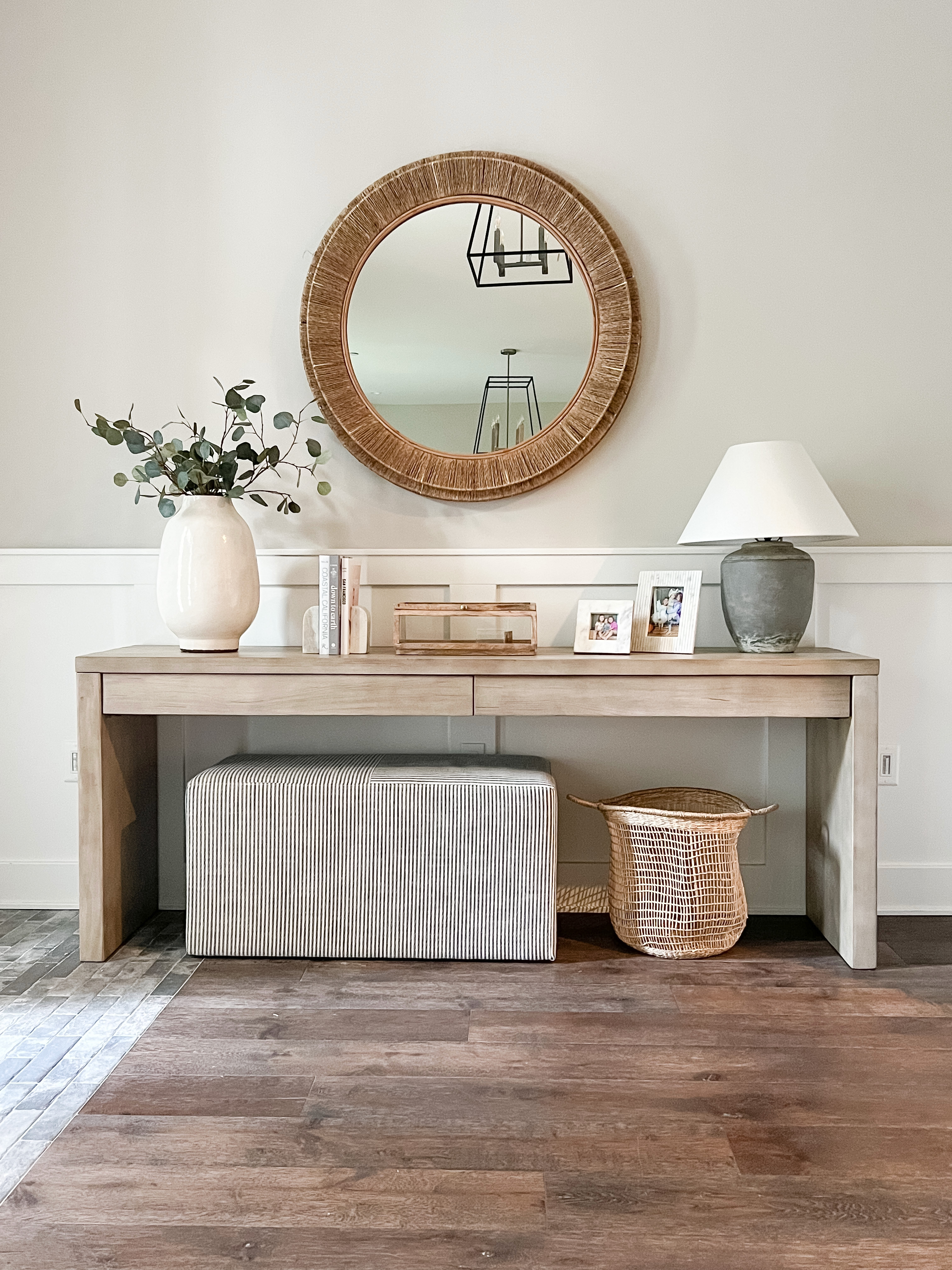
Look for furniture with storage that maintains a clean, uncluttered look. For example, a bench with a hinged lid can provide seating while also offering a place to store shoes, bags, or seasonal items.
This can offer convenient storage to reduce the number of items cluttering your countertops as well as minimize the amount of furniture taking up floor space in your entryway, which can also be a source of visual clutter.
5. Declutter and organize
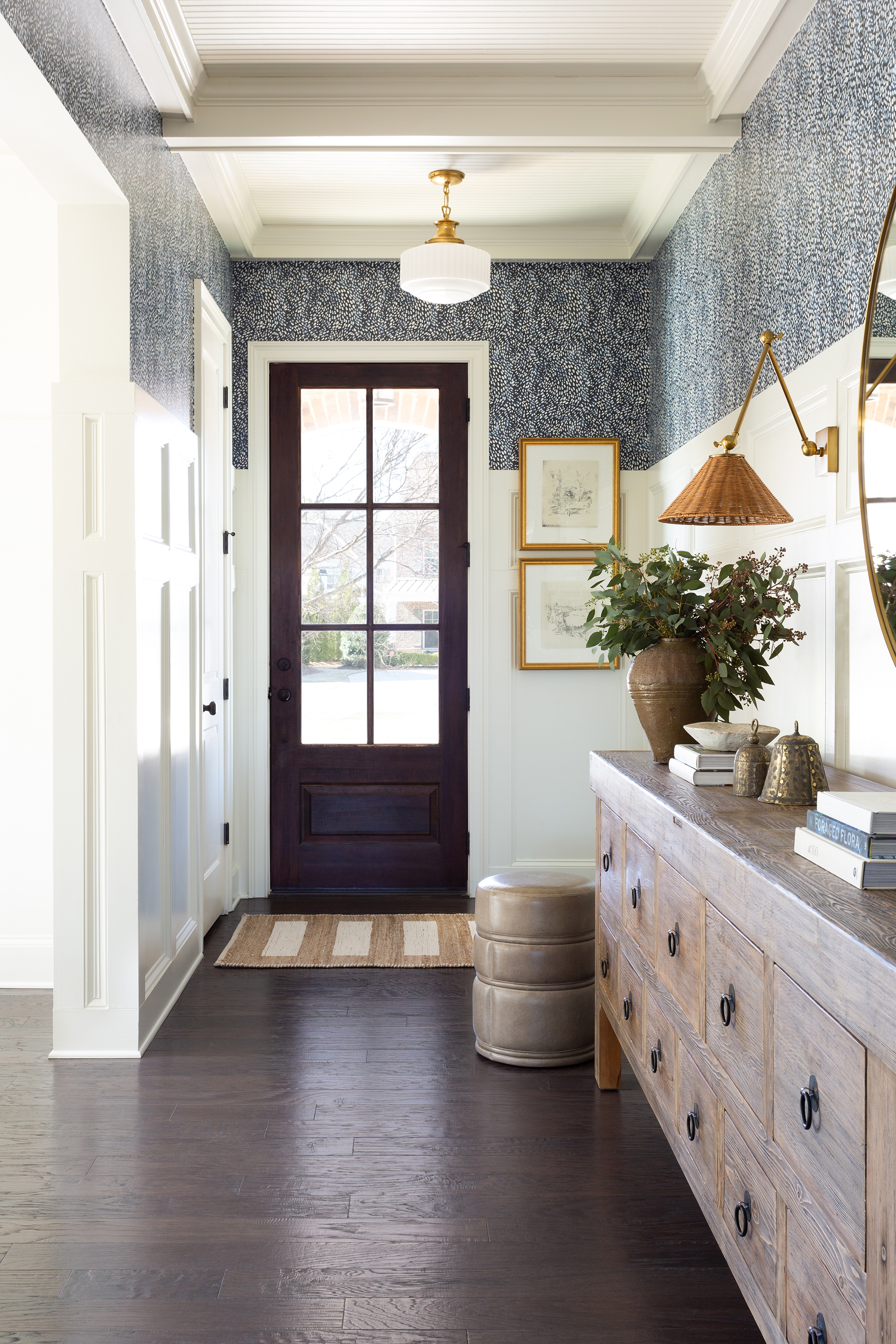
One of the best ways to reduce visual clutter in your mudroom is by regularly decluttering and organizing your entryway.
At least once a week you should sort through any miscellaneous items in the catch-all zone and ensure other items are in their designated space.
Take some time every few months to go through your entryway storage and get rid of anything you no longer need or use. Rotate seasonal items to make more room for frequently used items in your entryway.
Maintaining these routines will keep your mudroom organized and prevent it from becoming overwhelmed with unnecessary items.
6. Choose minimalist decor

Having a minimalist decor scheme can streamline your entryway's aesthetic and contribute to making the space look larger.
'Consider opting for a neutral color palette for walls, flooring, and storage solutions,' recommends Dianna Scarpa, CEO of Opal Home Staging. 'Neutral tones create a sense of openness and spaciousness, reducing visual clutter. Lighter shades also reflect more natural light, further enhancing the feeling of openness.
'Additionally, use matching storage containers, including baskets and bins, to store smaller items like gloves, scarves, or pet supplies. This creates a cohesive look and makes it easier to find what you need when you need it. Minimalist design not only creates visual space but also fosters a sense of calm and serenity in your entryway.'
Finally, be sure that pathways are kept clear to prevent the entryway from feeling cramped. Avoid placing furniture or storage units in the middle of the room, and ensure there is enough space to move around comfortably.

Lola Houlton is a news writer for Homes & Gardens. She has been writing content for Future PLC for the past six years, in particular Homes & Gardens, Real Homes and GardeningEtc. She writes on a broad range of subjects, including practical household advice, recipe articles, and product reviews, working closely with experts in their fields to cover everything from heating to home organization through to house plants. Lola is a graduate, who completed her degree in Psychology at the University of Sussex. She has also spent some time working at the BBC.
